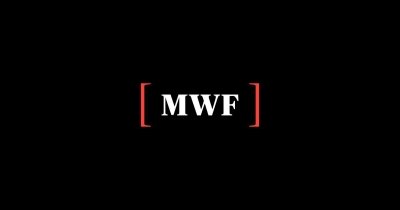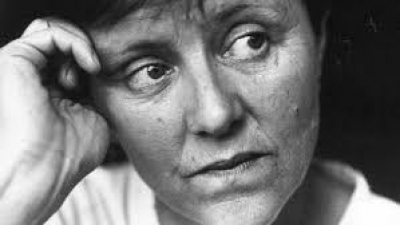Commentary
Just one of the interesting things I found out from reading Tom Shapcott’s The Literature Board: A Brief History (reviewed by Evan Williams in the April ABR) was that I appeared to be just about the only person in Australia who’d never received a Lit. Board grant. Well, me and Sasha Soldatow, who’s a minor celebrity because of Private – Do Not Open (Penguin $8.95 pb) but much more famous for never having received a grant in over a decade’s application. One year he even included a naked photo – of himself – with the standard form. That only seemed to contribute to his perfect score: twelve out of twelve knock backs. And that’s just one thing you won’t find in Tom Shapcott’s book, teeming though it is with statistics for every occasion.
... (read more)Contemporary Australian literature was among the less obscure topics discussed at the recent Modern Language Association convention held in New York. About 15,000 delegates came to the bazaar, some looking for jobs or friends, others attending a boggling array of literary discussions on bat fantasy in Dickens, the future of East European nature poetry and the shape of language in Thea Astley’s work. This last one was a fine lecture given by Robert Ross, tireless president of the American Association for Australian Literary Studies, which will hold its own conference in March at Penn State University. Marcia Allentuck gave a lively talk about Australian Yiddish literature – in particular Herz Bergner’s Light and Shadows, which portrayed the bitter angst of the immigrant almost thirty years before the current wave of immigrant writing.
... (read more)Melbourne, which has somehow appropriated for itself the reputation of being the first Australian city of ‘thought’, has become the last major city in this country to host a large-scale writer’s week. Well, we now have one and it’s called the Melbourne Writers’ Festival, and it is currently being staged.
... (read more)I have never flown first class on Qantas; I’d love to, but somehow I don’t think I ever will. But next time you fly first class on a Qantas 747, take a look at the inflight library and you might be surprised to find copies of George Johnston and Charmian Clift’s Strong Man from Piraeus; Elizabeth Jolley’s Palomino; Evan Green’s Alice to Nowhere; Gerald Murnane’s A Lifetime on Clouds; or Kate Grenville’s Lillian’s Story.
... (read more)This book is about the role played by ministerial staff in Australian federal government. It is particularly concerned with the potential influence on policy making that this group may have through their capacity to advise ministers. It is, then, about the nature of the relations between personal advisers and their principals – a general issue that can be explored through history, and in countries other than Australia (see chapter 2). From the outset, however, it is important to differentiate between advice to ministers and advice to government, and the term ‘adviser’ does not sufficiently alert us to that differentiation. Indeed, the term ‘adviser’ is traditionally used to signify public servants, who are formally charged with the responsibility of advice to government. I have therefore elected to borrow the term ‘minder’, a term that is creeping into journalism and into the vernacular to refer to a member of a minister’s staff. We can thus distinguish at once between minders (personal advisers) and mandarins (public servants).
... (read more)Phoenix Publications literally sprang from an ardent belief that there is place in Australian publishing for a small press representing a wide literary culture and achieving a high standard of design and production.
Phoenix Publications arose in Brisbane, when Manfred Jurgensen, Professor of German at the University of Queensland, was asked to assemble a collection of writing by Australians whose native tongue was other than English. The anthology, Ethnic Australia, appeared in 1980 and met with such interest that it was set in many high schools and tertiary institutions and went into a second edition the following year. Jurgensen decided that the best way to achieve the standard of production he wanted for Ethnic Australia was to publish it himself, and Phoenix Publications was established.
... (read more)The usual incumbent of this space is, as it were, being spelled. Meanwhile, the view from the other side of the bookshop counter is cheery. The debate about whether too much is being published and whether women writers are getting more of the discrimination than they are positively entitled to has flitted across the pages of the Bulletin and the National Times, with John Hanrahan, formerly an assistant editor and acting editor of this magazine, providing insight and balance.
... (read more)The publishing world and other allied industries, namely the media and literary critics, tend to promote authors on a ‘star’ system. Especially women writers. They allow certain women to become ‘flavour of the month’. Recently, if you remember, it was Beverley Farmer, and then Kate Grenville. For a short period, every newspaper, magazine, or radio program with a literary bent featured them and their fiction. This treatment is reserved for fiction writers. Never is such sustained coverage given to that awesome creature, the ‘woman poet’.
... (read more)Books flow steadily from the northern to the southern hemisphere through the traditional conduits of empire. To get them to flow back the other way is difficult but it can be done. The real task though, it seems to me, is to overhaul the plumbing so that writing and writers can flourish, and that’s a long haul.
... (read more)When the Writers’ Week organisers asked me to come and talk on a panel of literary agents, I naturally asked what they wanted me to talk about. (I knew that jokey anecdotes about publishers, writers, and agents would be just the thing; I also knew that my delivery would fall horribly flat, even if I could remember any.)
It was suggested that I might talk about pitfalls for writers – a subject on which literary agents can wax lyrical for hours – but that seemed slightly arrogant from where I sit, and I began to think of pitfalls for agents. And from there I started to think about what agents can and can’t do, how useful we are or aren’t, and by the time I’d thought all that through, I had the bones of what I wanted to talk about.
... (read more)


